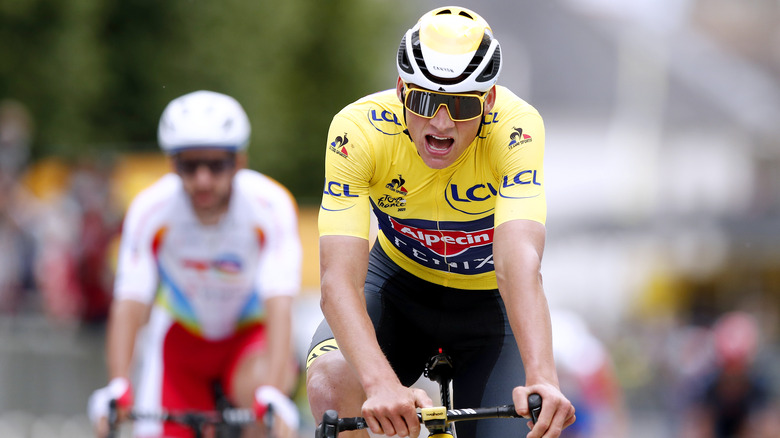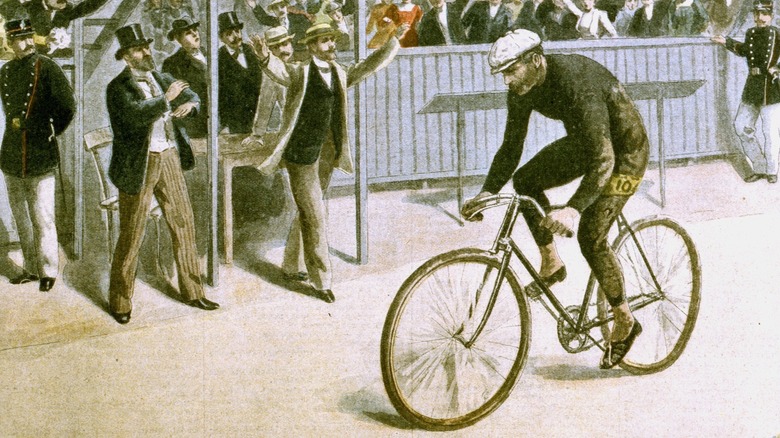The Weird Drink Tour De France Riders Enjoyed In The Early 1900s
These days, entire industries are devoted to what a professional athlete puts into their body. For example, "sports drinks," as they're called, are long on sugar, salt, and other nutrients that an athlete loses during exertion, according to Gatorade. Similarly, many athletes swear by their diets or whatever nutritional supplements they take.
Of course, just about any physician will tell you that the most important thing an athlete needs, nutrition-wise, when training or competing is something that is at once entirely mundane and eminently available — good, old-fashioned water. As Harvard Health Publishing reports, the importance of staying hydrated — with water, it should be specified — cannot be overstated, either for an athlete or just an average person living their daily life.
However, a century ago, the managers and competitors of the Tour de France, a grueling bicycle race that demands the best of the athletes competing in it, saw things differently, and eschewed water in favor of beverage choices that would make most modern athletes, as well as their coaches, trainers, and physicians (and the crowd), do a double-take.
Early tour de france competitors drank beer, wine, and hot chocolate
Athletes from a century ago had an understanding of nutrition and hydration requirements that was, shall we say, less developed than those of the modern era. And as Bicycling reported, the event that eventually became known as the Tour de France started out not so much as an athletic competition, but as a sort of moving picnic. In 1903, for example, competitor Maurice Garin ate at bars and drank from fountains during the "race." A year later, in 1904, competitor Henri Cornet chugged hot chocolate. Up until the 1960s, competitors drank beer and champagne, and in one memorable 1935 stage, the entire field of competitors, save for one, took a break to quaff a few beers with the locals. The one rider who passed on the beer wound up winning that stage.
"[Nutrition] was extremely rudimentary," says Christopher Thompson, author of the book, "The Tour de France: A Cultural History," in what may be the biggest understatement of all time.
By the 1980s, competitors were drinking coffee and even soda, spurned on by the jolt of caffeine. These days, though, according to OTE Sports, competitors stick to sports drinks and water during the event.

